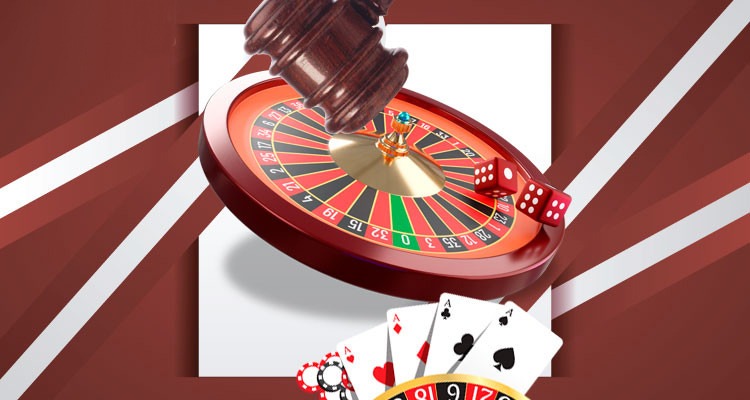The Republic of Latvia is a small EU country with a 1.9 million population. Located by the Baltic Sea, it is home to over a hundred slot halls, multiple betting venues, and nine casinos. Regulated 15 years ago, online gambling in Latvia has become a mainstream activity.
Compared to most European jurisdictions, gambling laws in Latvia are not so strict. The country also has low tax rates and no double taxation. There are, however, some downsides to the local gambling system as well. To enter the Latvian market, operators need to have a majority of Latvian stakeholders and open a headquarters office in the country. This requirement has prevented many renowned iGaming companies from launching in this market. Latvia also has rather strict but effective regulations on offshore gambling. It is also one of the few countries where players are prosecuted for gambling at offshore casino sites.
This Login Casino article provides an honest review of Latvia’s online gambling laws, regulations, and market tendencies.
Gambling history in Latvia
Before Latvia gained independence in 1991, gambling wasn’t a popular activity in this region. The Soviet Union, a part of which the Republic of Latvia was at the time, didn’t allow most games of chance. That’s why the first Latvian casino opened only in 1991. Casino venues, however, were operating in a gray area, as gambling in Latvia remained unregulated up until 1998. And the government clampdown on casino operators led to the closure of many gambling establishments in the country.
But is gambling legal in Latvia in 2024? Yes, it is. Gambling activities have been regulated for more than twenty-three years. In 1998, the Latvian government established the gambling authority – Lotteries and Gambling Supervisory Inspection – and adopted the Gambling and Lotteries law. Online games of chance and lotteries were regulated in 2006.
Up until the beginning of the Covid-19 pandemic in March 2020, the gambling market of Latvia was flourishing. Several lockdowns and other restrictions negatively affected land-based gambling and resulted in GGR decrease and withdrawal of one casino and two betting licenses. To prevent a spike in problem gambling behavior, the Latvian government also banned remote games of chance from April 8 to June 9, 2021. Now, terrestrial casinos, slot halls, bingo, and betting shops work with some restrictions, and online casinos in Latvia are back to normal.
Structure of gambling in Latvia
Latvian gambling law permits the following types of gambling activities:
- slot machine games;
- roulette;
- card games (including poker);
- dice games;
- betting;
- totalizator;
- bingo;
- lottery;
- gambling via telephone.
Fantasy sports betting and loot boxes are not specifically regulated. Poker can be offered both on online gambling sites and at offline casinos. There are, however, very few online poker websites and no poker halls in Latvia.
Private gambling operators can legally offer their services in the Latvian market. The national lottery, however, is under the monopoly of the state-owned company Latvijas Loto. Private companies can run local lotteries with a total prize fund of up to €14,3k.
In Latvia, companies can offer gambling services either in brick-and-mortar venues, online, or via the phone.
According to the Lotteries and Gambling Supervisory Inspection statistics, by the end of 2021, 17 gambling operators and state-owned company Latvijas Loto held a total of 25 licenses, including:
- 9 permits for terrestrial gambling;
- 3 betting shops permits;
- 13 online gambling licenses.
The offline gambling market of Latvia is dominated by the gaming machine halls (208 venues), which are closely followed by the betting points (76 venues). As of October 2021, there were only three brick-and-mortar casinos in the country and one bingo hall. As for the gambling equipment, all the gambling establishments had:
- 4 851 slot machines;
- 10 roulette tables;
- 27 card tables.
Most of the gambling venues are located in the Latvian capital, Riga.
Laws and license of the Latvia Gaming Authority
Gambling and Lotteries Law is the main regulatory document in the field of games of chance in Latvia.
Lotteries and Gambling Supervisory Inspection is the authority that oversees gambling activities in the country. Private companies can organize games of chance and lotteries after obtaining a license from the authority. There are several requirements for the applicants for Latvia gambling license:
- Operator company must be registered in Latvia and have a paid-up share capital of at least €1.4 million;
- The company must have at least 51% of Latvian residents among the stakeholders. This rule doesn’t apply to investors for the European Union, European Economic Area countries, and members of the Organization of Economic Cooperation and Development. It also can be waived in events of agreement with the Lithuanian Parliament.
The Supervisory Inspection issues gambling permits for an indefinite period. Operators, however, have to reregister with the gambling authority every year.
A local lottery license can be granted to a capital company incorporated with the Register of the Enterprises of the Republic of Latvia with a minimum share capital of €14.3k. Trade unions, associations, and religious organizations can apply to the Inspection for a single local lotteries license. Licensees can organize these lotteries at public events, musical performances, shows, or sports events.
Apart from that, the main regulations on gambling that are in place in the country are:
- The legal gambling age in Latvia is 18, but some land-based casinos have a 21+ policy;
- Age and identity verification is mandatory for all who want to enter terrestrial or digital gambling establishments;
- Gambling on credit is forbidden in the Republic;
- Offshore gambling is illegal in the country, and all licensed sportsbooks and casinos in Latvia must operate under the “.lv” domain;
- The regulator backlisted over 1.5k casinos, and since August 2020, financial institutions and Internet service providers began to send info about players of offshore websites to the Latvian authorities. Latvians that have gambled on the illegal sites will pay a fine of up to €350;
- Players that avoided taxes on their casino winnings are fined 23% on the prizes over €3000.
- Gambling ops can’t organize games of chance in residential buildings, churches, medical, educational, or credit institutions, and cultural establishments;
- Advertising of games of chance is prohibited outside the gambling venues.
Taxes and fees
Before obtaining a Latvian gambling license, any company has to pay the fee to the Supervisory Inspection. The rates are as shown in the table below.
| Type of gambling activity | Issuance of license | Prolongation of license | Yearly re-registration | Permission to operate casino/bingo hall |
| Slots, bingo, roulette, card and dice games | €427k | €35.58k | €35.58k for each year | €28.46k annually€4.27k annually |
| Betting and totalizator | €42.69k | €42.69k | €42.69k for each year | n/a |
| Games of chance on the telephone | €14.23k | €14.23k | €14.23k for each year | n/a |
Lottery organizers pay a state fee for the issuance of the license. The size of the payment depends on the type of lottery game:
- National lottery – €14.23k annually;
- Local lottery – €730 annually;
- National instant lottery – €8.54k for each draw;
- Local instant lottery – €720 for each draw;
- Single local lottery – €35 for each draw.
The Republic of Latvia has one of the lowest online gambling tax rates in Europe. Registered operators pay the gambling levy every month as 1/12 of the yearly rate. 75% of the taxes go to the state budget and 25% to the budget of a local government.
| Gambling activity | Tax rate |
| Land-based gambling venues | roulette – €17 279.36 for each table;card and dice games – €17 279.36 for each table;slot machines – €3 141.7 for each machine |
| Games of chance via the telephone | 15% of GGR |
| Totalizator and betting | 15% of GGR |
| Bingo | 10% of GGR |
| Online gambling (all types of games of chance) | 10% of GGR |
| Lotteries | 10% of ticket sales |
There are, however, two exceptions:
- Non-profit and religious organizations that provide single local lotteries are exempt from the state fee and tax;
- Ops that organize gambling in means of international transportation are exempt from the tax if only registered passengers can gamble.
Preferences of Latvian gamblers
The most recent survey of the Latvian gamblers was conducted in 2016 by the research center SKDS. Results of the study show that the majority of land-based casino and gaming halls visitors are working men aged 25 to 34 years. At the same time, one-third of Latvians have never participated in any gambling activities. Most gamblers go to casinos or slot halls to spend quality time among like-minded people. The average bet is €10 for two-thirds of players.
From 2011 to 2016, the share of online casino players in Latvia increased by 11%. And in the last two years, 2020 and 2021, the popularity of online gambling spiked, mainly due to the closure of land-based venues. The official Lotteries and Gambling Supervisory Inspection statistics show that online gambling profits in the first nine months of 2021 were almost twice as high as in the corresponding period in 2020 (€36.41m in September 2020 compared to €77.91m in September 2021).
The 2021 revenue data also indicates that the most played games of chance are online casino games (slots, card games, and roulette generated €62.1m), followed by online sports betting (€14.5m). Poker tournaments are the least played in the online sector. As for land-based gambling, slot machines dominate (€13.2m) the sector.
Future of online gambling in Latvia
In over fifteen years that online casinos of Latvia have been legal, the local iGaming market has experienced consistent growth. Despite the two-month ban on all gambling activities in the spring of 2021, the iGaming industry managed to recover and even double the 2020 level of online GGR.
Nonetheless, the online casino market of Latvia is one of the smallest in the EU. Online gambling revenues collected in neighboring Estonia are often ten times higher. The main reason for this is strict licensing requirements. If the government allowed foreign ops to legally run gambling businesses without having to open a headquarters in Latvia, the country could have experienced significant market growth.
Read more: Best iGaming Aggregators














